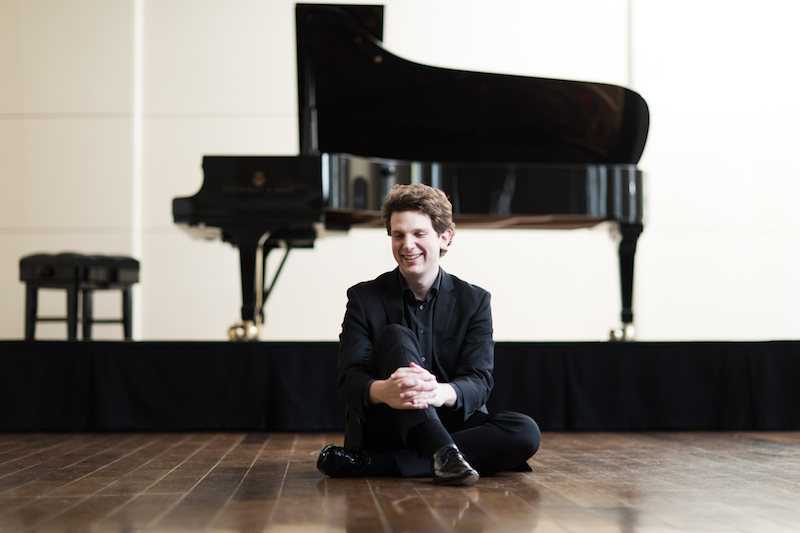Jayson Gillham has come a long way from his humble beginnings in the Queensland country town of Dalby. Now in his early 30s, Gillham is based in London and has an international career. He arrives in Melbourne having just performed all of Beethoven’s Piano Concertos with the Adelaide Symphony Orchestra to great acclaim. This concert developed themes explored in his 2016 debut disc with ABC Classic, Romantic Bach. Rachmaninov’s take on the Prelude from Bach’s Violin Partita No 3 was a perfect curtain-raiser for such an exploration, presenting a well-judged melding of brilliance and clarity with expressive flexibility.
 Jayson Gillham. Photograph © Benjamin Ealovega
Jayson Gillham. Photograph © Benjamin Ealovega
Bach’s A minor Fantasia and Fugue, BWV 904 was well delineated, and in the spirit of the program, included judicious octave doubling in the bass. The Fantasia was full of energy and the fugue (for all intents and purposes, a double fugue) was clearly laid out, Gillham carefully shaping the first subject with its rising fifth and then rising sixth. A judicious tempo allowed an attractive ebb and flow of musical ideas to emerge.
Egon Petri’s arrangement of Bach’s Schafe können sicher weiden (Sheep may safely graze) from Cantata 208 was given straightforward treatment, free of any affectation. The multi-sectioned nature of Bach’s Capriccio On the Departure of a Beloved Brother BWV 992 afforded Gillham the opportunity to set various moods while telling the story of friends unsuccessfully attempting to dissuade a young man from leaving their company. The central lament was suitably spacious and lyrical, forming a good contrast with the foreboding of the second movement and the final, fugal postilion ride.
Busoni’s reimagining of the Chaconne from Bach’s Violin Partita No 2 is a pianistic edifice as massive as it is grandiloquent. Gillham invested the music with solid, ringing tone and surmounted its considerable technical challenges with flair, saving energy for a final, incendiary peroration of the theme.
Leaving Bach behind, the second half of the program focussed on the intersection between pianism and the song in both early and later romantic contexts. Schumann’s all-too-rarely-performed Waldszenen, Op. 92 have an appealing honesty and simplicity that refreshed the musical palate after the Busoni. Gillham’s customary clarity served the music well. Just occasionally certain movements (such as Einsame Blumen) could have benefitted from greater warmth of tone, as means of binding up Schumann’s disparate musical ideas. Vogel als Prophet, one of the composer’s most whimsical utterances, had a good sense of timing, and the bittersweet valediction of Abschied was well realised.
The remainder of the program consisted of four song transcriptions by Liszt. Schubert’s Erlkönig, with its rapid-fire repeated notes was truly exciting, not least with the carefully managed accelerando during the final struggle between life and death. Weaving between minor and major in classic Schubertian manner, Der Müller und der Bach was full of restrained longing. Schumann’s famous Widmung came across with plenty of passion, notwithstanding a tiny lack of focus early on. Mistakenly attributed to Schubert in the program, Schumann’s Frülingsnacht from the Op. 39 Liederkreis provided a shimmering end to this generous program which had plenty of technical and expressive challenges.
Gillham, who attracted a large and enthusiastic audience, showed himself more than equal to these challenges. Like a good vintage in which the relationship of fruit to deeper flavour changes over time, I look forward to hearing how the relationship between extraversion and introversion (which is at the heart of this program) will develop in Gillham’s playing. His is a career definitely worth following.











Comments
Log in to join the conversation.